
Monstera Thai Constellation: Cosmic Greenery 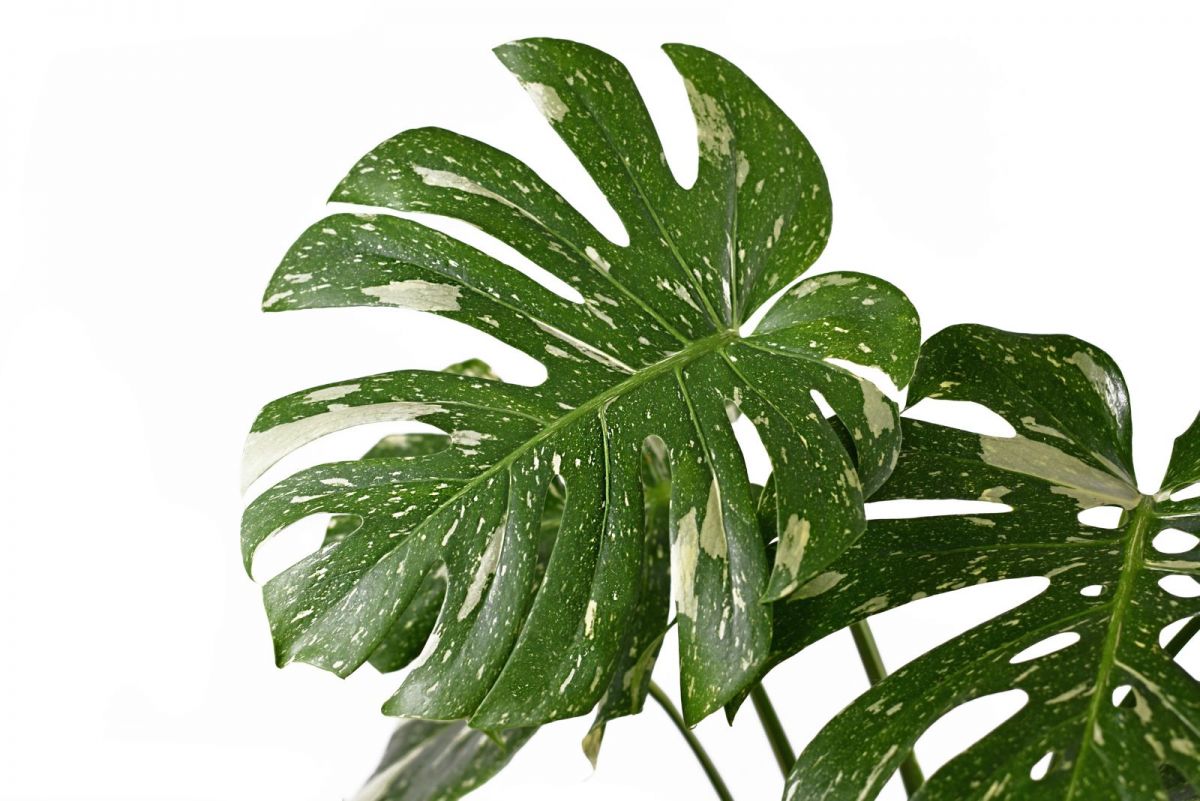
In the botanical spotlight of 2024, the Monstera Thai Constellation emerges as a captivating trendsetter. Renowned for its unique variegated foliage resembling a starlit night sky, this plant adds an ethereal touch to any space. Its leaves, adorned with splashes of cream and hues of green, create a mesmerizing constellation-like pattern, making it a sought-after choice for interior décor. To ensure its thriving existence, provide bright, indirect light, maintain consistent moisture, and offer a well-draining soil mix. With proper care, this celestial plant transforms living spaces, making it a star among the top trending plants of 2024.
Sansevieria (Snake Plant): Masoniana and Trifasciata
Sansevieria, better known as the Snake Plant, is a beautiful, striking upright leaves and patterns resembling the patterns of a snake’s skin native to Africa and southern Asia. There are at least 70 species of Sansevieria, but we will focus on the Sansevieria masoniana and the Sansevieria trifasciata. Although both plants belong to the same species, there are notable differences that distinguish them from each other.
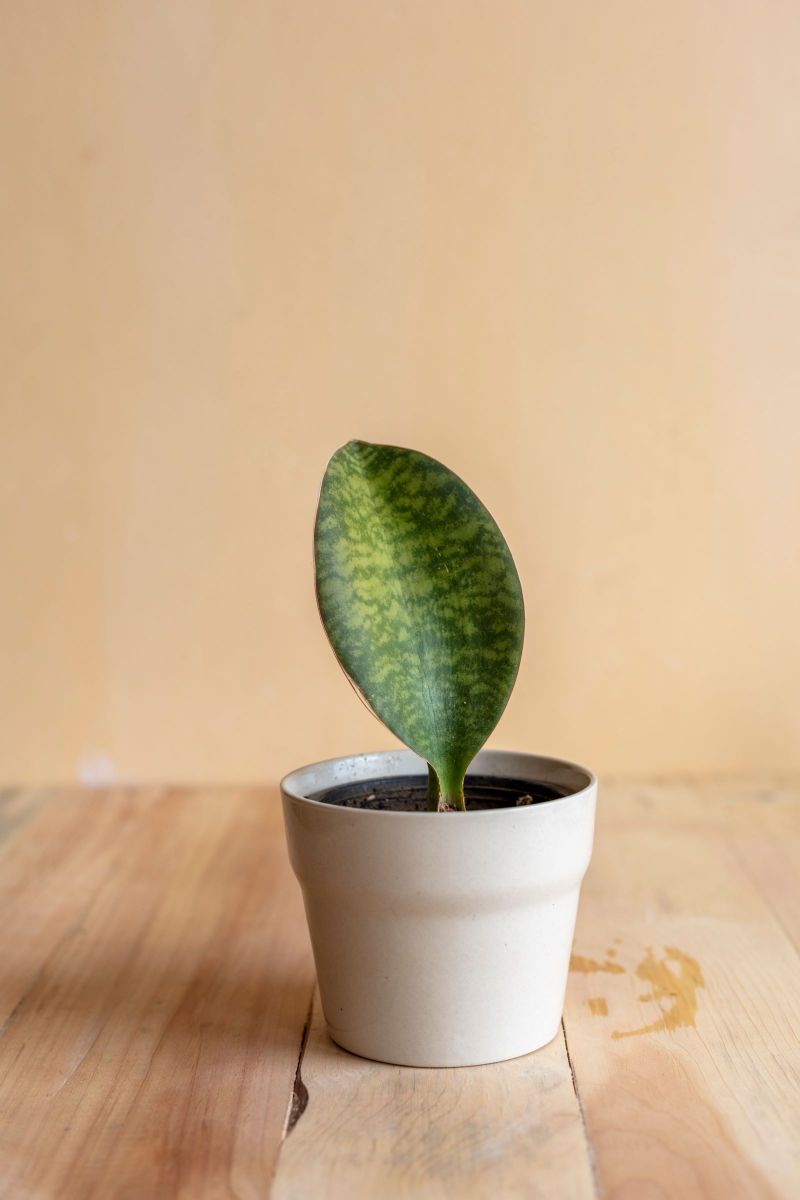
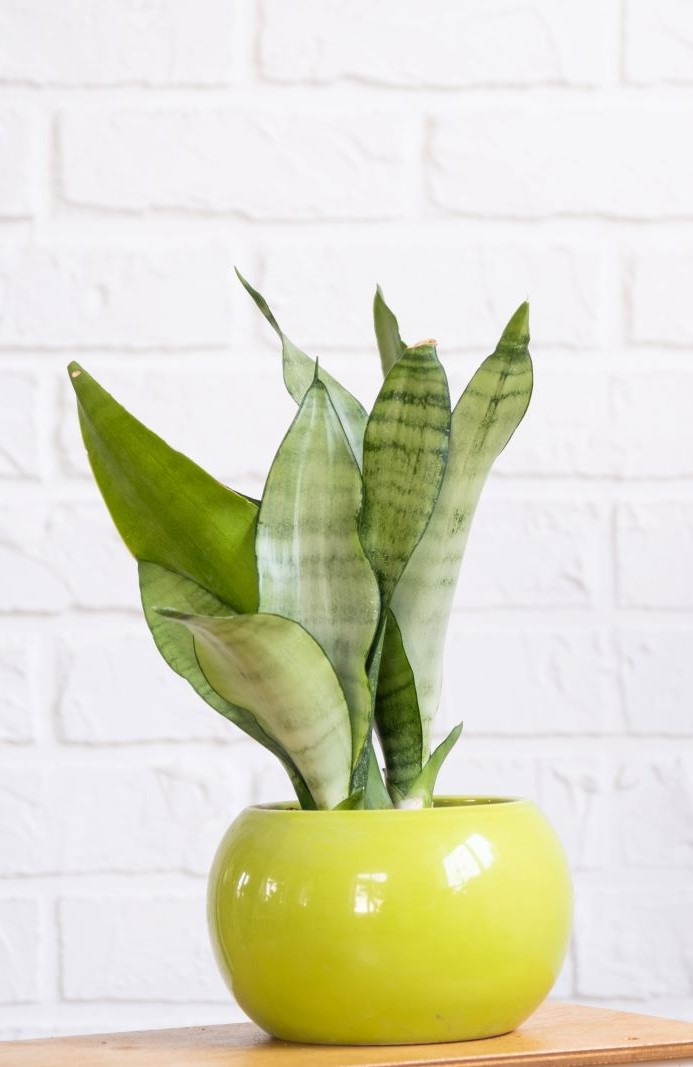
Whale Fin pictured above Moonshine pictured above
- Leaf Appearance: Sansevieria masoniana is known for its large, paddle-shaped leaves with a unique pattern resembling a bird’s nest. The leaves are wider and more robust compared to Sansevieria trifasciata which display long, upright, and sword-shaped with variegated patterns, usually featuring horizontal stripes.
- Growth Habit: The Sansevieria masoniana has a more rosette-like growth habit, with leaves emerging from a central point, giving it the appearance of a nest while the Sansevieria trifasciata’s leaves grow upright in a clustered, sword-like fashion.
- Common Names: The Sansevieria masoniana is commonly known as Whale Fin while the Sansevieria trifasciata is commonly known as Moonshine.
- Sprouting Requirements: Both species are generally low-maintenance and tolerate low light conditions, but Sansevieria trifasciata is known for being particularly hardy and adaptable.
Dragon Scale Alocasia: A Scaley Showstopper
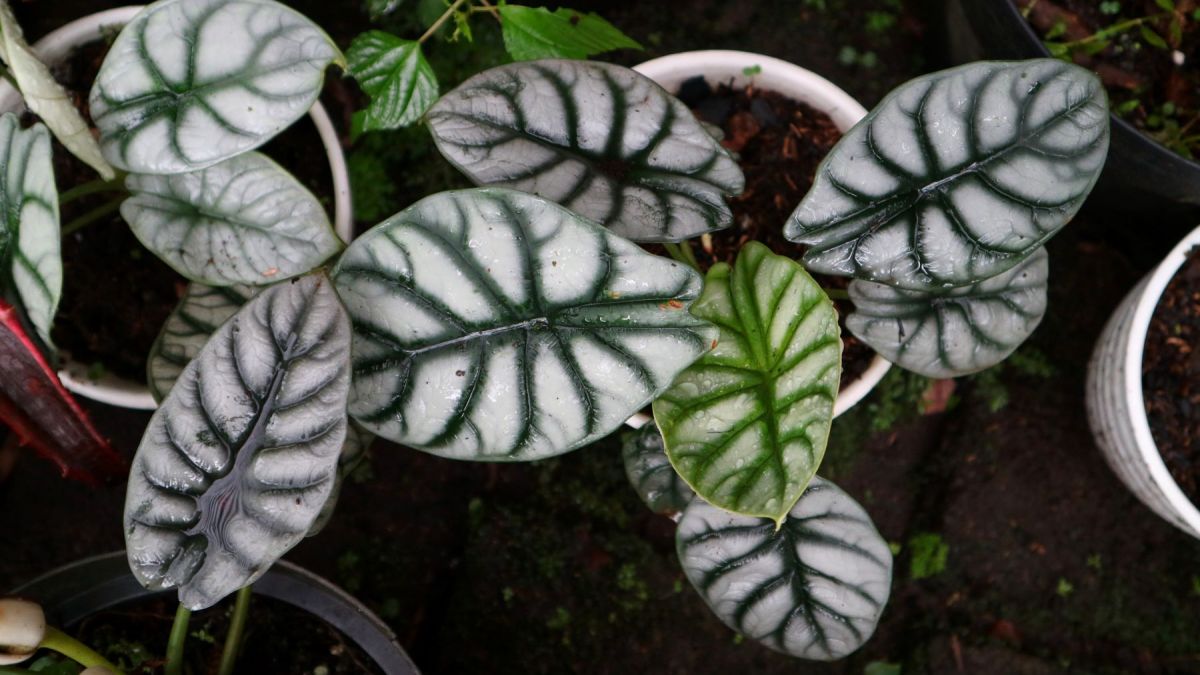
The Dragon Scale Alocasia is a plant native to the tropical forests of Borneo. Renowned for its mythical allure and distinctive foliage, this Alocasia variation boasts textured leaves reminiscent of dragon scales, creating an enchanting visual spectacle. Its leaves offer an allurement of contrast. Its leaves are dark green with lighter veins and edges. Being a tropical plant, Alocasia prefers a humid environment so place it in your bathroom or next to a running humidifier. As plant lovers seek unique and statement pieces to adorn their living spaces, the Dragon Scale Alocasia stands out, embodying a perfect blend of nature’s beauty and a touch of fantasy.
ZZ Plant: The “Unkillable” Plant
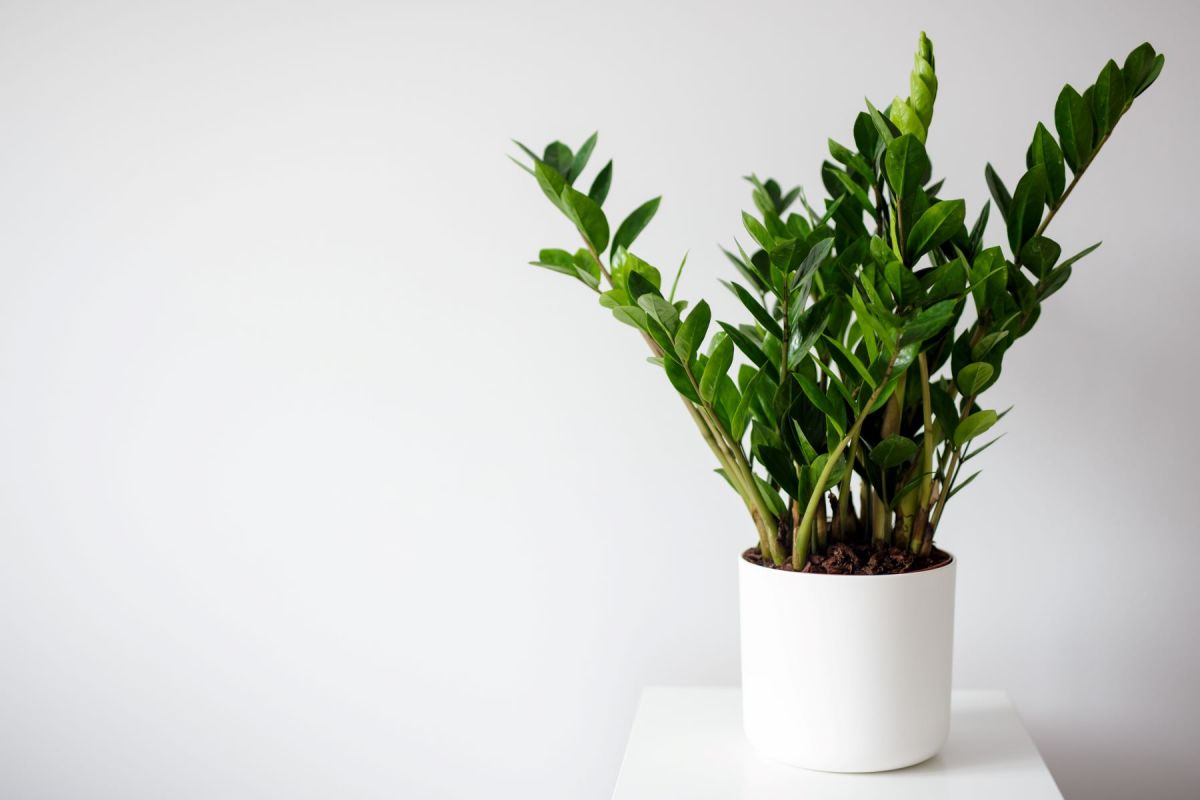
Zamioculcas Zamlifolia, commonly known as the ZZ Plant, has become an icon of modern interior greenery. With glossy, dark green leaves that elegantly arch upward and add that dramatic touch, the ZZ Plant is certainly not a plant to sleep on in 2024. Its appearance perfectly pairs with a range of decor styles, from minimalist to eclectic. Not to mention, the ZZ Plant is notorious for its resilience towards neglect. Its ability to store water, thrive in low-light conditions, resist pests, grow slowly, and exhibit a rhizomatous growth habit collectively contribute to its reputation as a remarkably tolerant and resilient houseplant - able to withstand neglect and less-than-ideal care conditions.
ZZ Raven: Noir in Nature
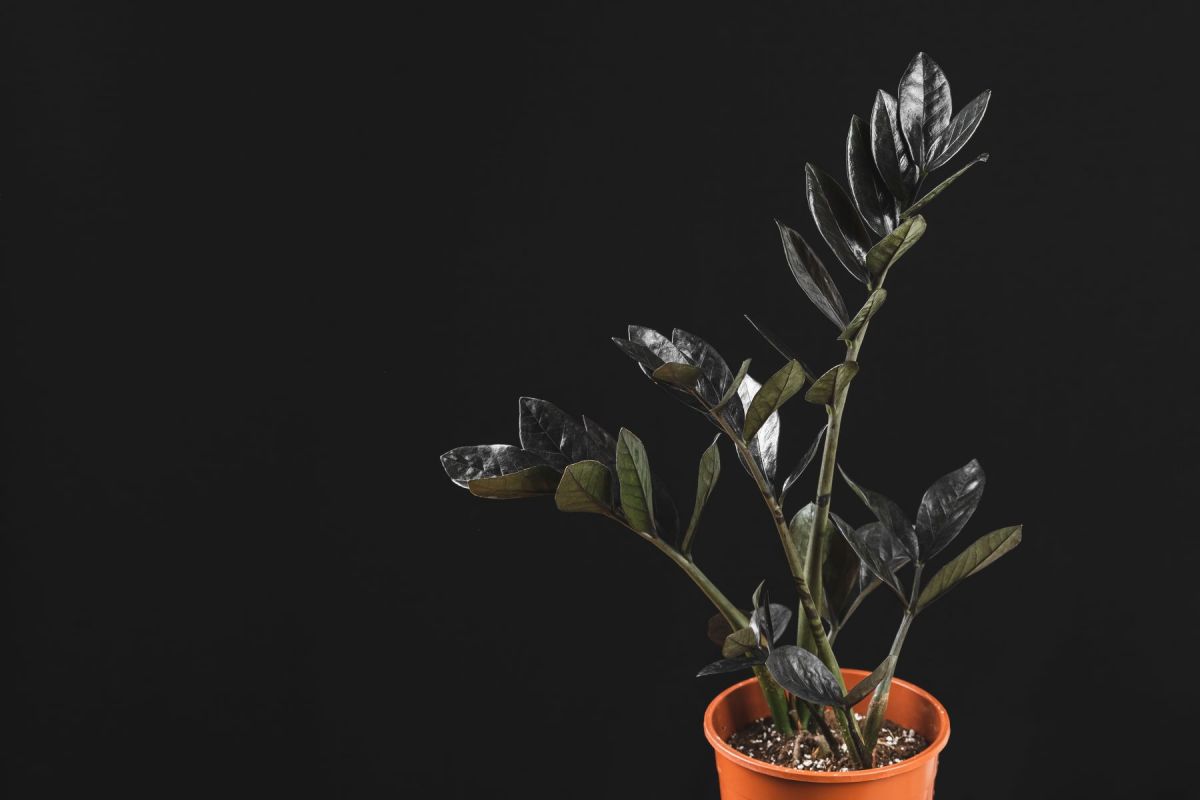
There are at least 13 species of the Zamioculcas Zamlifolia. The ZZ Raven Plant, a captivating variant of the classic ZZ Plant, is certainly one of the top trending plants of 2024 to look out for. Known for its stunning, near-black foliage, this plant brings a touch of drama and sophistication to contemporary interiors. Its dark, glossy leaves create a striking contrast, making it a favorite among plant enthusiasts and interior designers alike. In addition to its ebony elegance, the ZZ Raven is celebrated for its resilience and adaptability to various light conditions. Low-maintenance and requiring minimal watering, it thrives in both bright and low-light environments, making it an ideal choice for busy individuals seeking a stylish yet undemanding green companion.
Ficus Plant: Alii, Benjamina and Moclame
Ficus refers to any plant belonging to the genus Ficus, which is a large group of 850 species of woody trees, shrubs, and vines in the fig family (Moraceae). Ficus plants are known for their diverse species, and many of them are popular as ornamental houseplants. We will be focusing on the Ficus Maclellandii (Alii), Ficus Benjamina and Ficus Moclame.
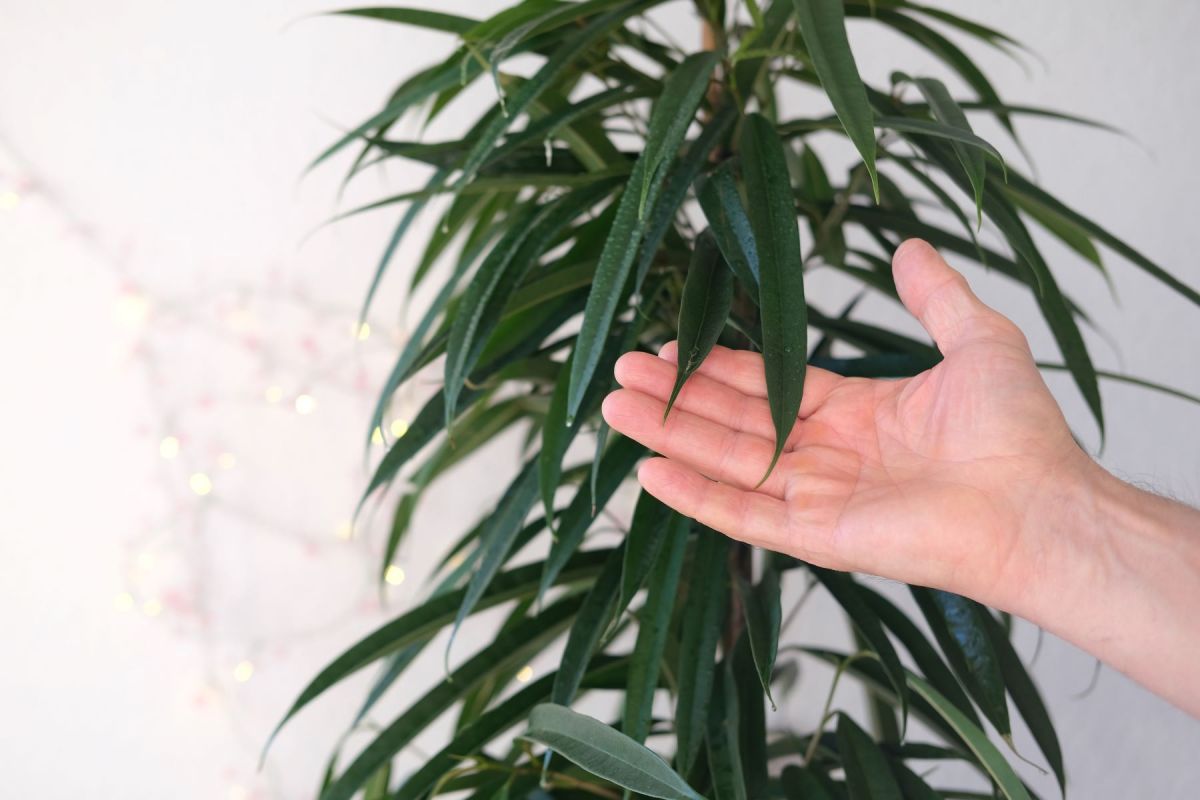
Ficus Alii: A species of fig plant native to India, Southeast Asia and China. The Ficus Alii is also commonly called the Banana leaf fig for its long and slender shape of its leaves. It thrives in bright, indirect light and prefers well-draining soil. Regular watering without waterlogging and occasional misting for added humidity contribute to its overall well-being.
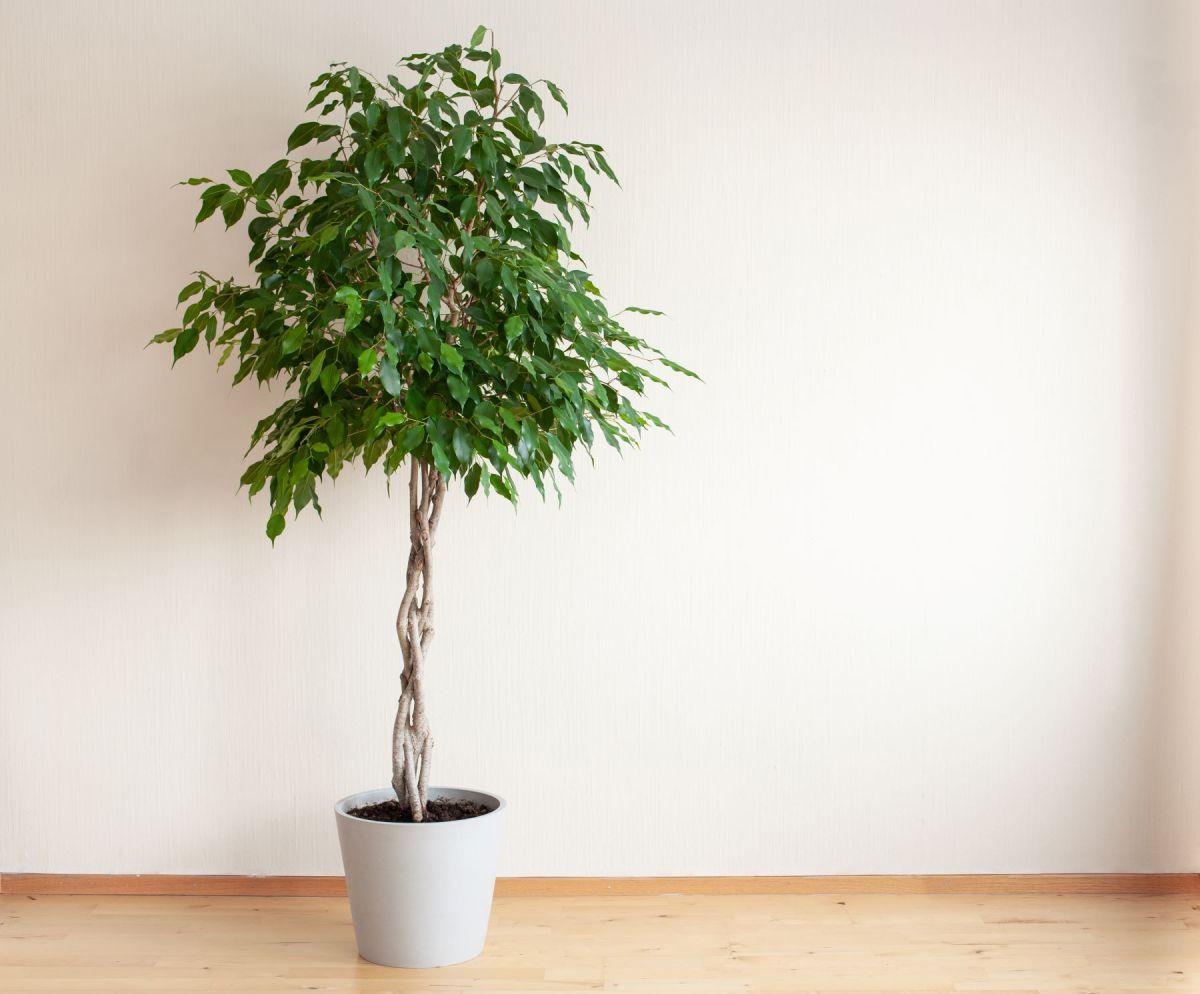
Ficus Benjamina: A species of fig plant native to Asia and Australia. The Ficus Benjamina, also known as the weeping fig, is known for its gracefully drooping branches adorned with glossy, lance-shaped leaves, this Ficus variety adds an air of sophistication to interior spaces. To ensure its optimal growth, the Weeping Fig thrives in bright, indirect light and well-draining soil, with consistent watering and occasional misting for added humidity.

Ficus Moclame: A species of fig plant native to southern Asia and Australia. Although mistaken for its sister, the Ficus Benjamina, the Moclame’s thick, rounded leaves make it uniquely identifiable. Its braided trunk and lush, glossy foliage bring a touch of botanical elegance to interiors. Care for the Ficus Moclame involves regular watering, allowing the soil to partially dry between waterings, and occasional pruning to maintain its shape.
Start Your Year Off Right with Jolly Lane’s House Plant Sale!

As you keep an eye out for some of the top trending houseplants mentioned this year, be sure to take advantage of Jolly Lane’s House Plant Sale which lasts from January 15th - January 31st! Shop for the houseplant of your dreams and get 25% off your purchase! Plus, enjoy free repotting when you purchase both a plant and a pot! Visit Jolly Lane Greenhouse and embark on your journey to a greener 2024!
